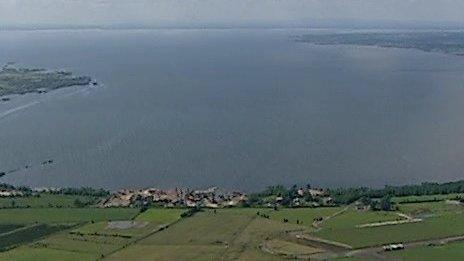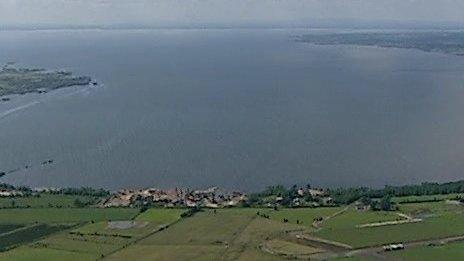Lough Neagh: Mark H Durkan tells firms to halt sand extraction
- Published

The Green Party says it is concerned that the ecosystem of the lough has been damaged
Companies in the Northern Ireland construction sector have been told to stop extracting sand from the floor of Lough Neagh.
Environment Minister Mark H. Durkan has written to five firms involved.
It comes after his department discovered earlier this year that the practice - akin to mining - did not have planning approval.
More than one million tonnes of sand are removed each year.
"My department has issued letters advising their works are unauthorised and that the activity should cease until this situation has been addressed," Mr Durkan has told the Green Party MLA Steven Agnew.
As many as 150 people work in activity related to the trade, which has taken place for decades.
The BBC understands the companies are in talks with government agencies and intend submitting a planning application in the coming months.
'Shambolic'
A statement from the Department of the Environment added: "These activities predate planning control and have been an inherent part of Lough Neagh's environmental and economic existence for over 70 years.
It said it wants to deal with the matter "appropriately and proportionately".
It added: "The department is actively engaging with the sand traders and their representatives with a view to regularising the situation.
"Activities on the lough are subject to live enforcement proceedings."
But Mr Agnew said he was concerned that sand excavations have already upset the Lough Neagh ecosystem.
"Lough Neagh is now proving to be yet another example of shambolic planning enforcement," he said.
"I have to ask why action was not taken sooner.
"This could be interpreted as clear breach of EU wild birds, habitats and environmental impact assessment directives, leaving the department open to the possibility of infraction fines from Europe."
Earlier this year a spokesman for the operators described the issue as "a technicality".
- Published11 March 2014
